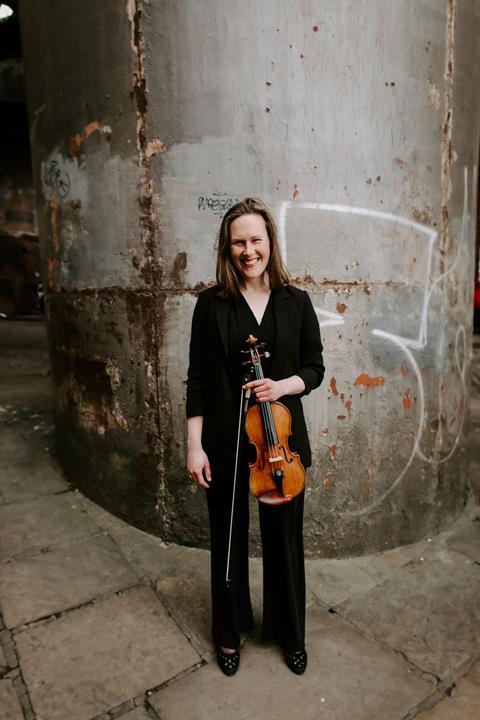Ahead of a performance with the English Symphony Orchestra at the Elgar Festival on 1 June, the violinist shares the significance of this work throughout her musical journey

Discover more Featured Stories like this in The Strad Playing Hub
When did you first come across the Elgar Violin Concerto? When did you first perform it?
In 2007, I was asked to play it in my home country of South Africa with the Cape Philharmonic Orchestra, conducted by Owain Arwel Hughes. I had listened to the work as a child and student with a fair bit of scepticism. It wasn’t until I’d played Elgar’s symphonies that I began to grow closer to and understand the Violin Concerto for myself. I’m very glad I came to it in that order: symphonies first, concerto second. It’s very much a symphony for violin and orchestra.
How do you think this work compares to the mighty Cello Concerto?
I can’t compare them! They are two completely different things. For me, the Cello Concerto is like a series of perfect postcards, or poignant photographs capturing a place or time.
The Violin Concerto is vast, with much less of an immediate ‘hook’ in terms of melody. The solo line is interwoven with the orchestra in a completely different way - Elgar treats the violin less like a solo voice and more like an extension of the orchestra. Even the cadenza is accompanied - it’s the least soloistic concerto in the canon in many ways.
Do you have any advice to string players learning the work? What’s the trickiest section or technique for you in the piece, and how do you overcome it?
The Violin Concerto has many tricky technical elements, but I would say the main challenge is stamina. One has to produce a sound that is continuously projected but always with the utmost quality. This is tiring, and it is a very long work! It also requires real knowledge of the orchestral parts to understand the dialogue between orchestra and solo, so I study the score a lot.
What’s the best part about performing this work?
The vast emotional range - it takes everyone on a real journey, soloist, conductor, orchestra, and most importantly the audience.
Tell us about the instrument you’ll be playing on in your performance on 1 June.
I am very fortunate to play an Alessandro Mezzadri violin (1709) by the kind support of the Stradivari Trust. It is a wonderful, dark-toned instrument perfect for all the rich melodies of the Elgar concerto. I have been playing it since 2020.
Zoë Beyers will perform the Elgar Violin Concerto with English Symphony Orchestra in Worcester Cathedral on 1 June – Gala Concert at the Elgar Festival. Find out more here. Watch Zoë perform an excerpt of Steve Elcock’s Violin Concerto here:
Read: Violinist Zoë Beyers announced as ESO’s principal artist and leader
Read: Violinist Esther Abrami on her Elgar Festival residency
Read more Featured Stories like this in The Strad Playing Hub
The number one source for playing and teaching books, guides, CDs, calendars and back issues of the magazine.
In The Best of Technique you’ll discover the top playing tips of the world’s leading string players and teachers. It’s packed full of exercises for students, plus examples from the standard repertoire to show you how to integrate the technique into your playing.
The Strad’s Masterclass series brings together the finest string players with some of the greatest string works ever written. Always one of our most popular sections, Masterclass has been an invaluable aid to aspiring soloists, chamber musicians and string teachers since the 1990s.
American collector David L. Fulton amassed one of the 20th century’s finest collections of stringed instruments. This year’s calendar pays tribute to some of these priceless treasures, including Yehudi Menuhin’s celebrated ‘Lord Wilton’ Guarneri, the Carlo Bergonzi once played by Fritz Kreisler, and four instruments by Antonio Stradivari.













































No comments yet